
SCS Spring School on Digital Chemistry
«Applied to Drug & Crop Protection Discovery»

SCS Spring School on Digital Chemistry
«Applied to Drug & Crop Protection Discovery»
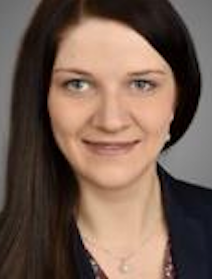
Keynote Lecture
Dr. Miriam Mathea, Global Scientific Discipline Lead Cheminformatics, BASF
Miriam studied pharmacy at the University of Technology Braunschweig. After her diploma thesis in the are of biochemistry she joined the group of Prof. Knut Baumann in 2013 for her PhD studies in the field of Cheminformatics. She worked on class-probability estimation of machine learning methods and their influence on applicability domain estimation. In 2017 Miriam joined BASF as computational toxicologist where she worked on several projects related to (eco)-toxicological profiling of compounds, physico-chemical property and bioactivity prediction. In addition she supported synthesis planning and de-novo molecule design projects. Miriam is currently leading the Cheminformatics team at BASF.
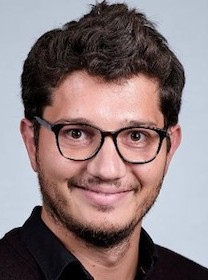
Dr. Florent Chevillard, Scientist Computer-aided Drug Design, Idorsia Pharmaceuticals Ltd.
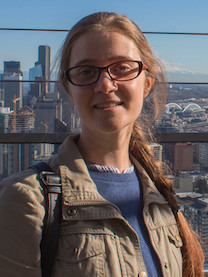
Dr. Olga Kononova, Research Scientist, Syngenta Crop Protection
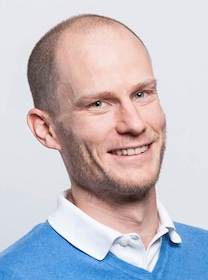
Julien Hazemann, Technology Expert Computer-Aided Drug Design, Idorsia Pharmaceuticals Ltd.
Julien is involved in hit to lead and lead optimisation projects in his current role at Idorsia. He studied chemistry and pharmacology at the university of Strasbourg, France. In 2020, he started an industrial PhD in Machine Learning Drug Design with Prof. Paul Czodrowski at the Johannes Gutenberg University in Mainz, Germany. Between 2013 and 2018, Julien was in charge of designing and maintaining the Actelion/Idorsia corporate screening collection, and provided strategic partnership/operational support to Hit-to-Lead and Drug Discovery projects. Before 2014, he worked for several years as a research associate in a medicinal chemistry lab. Julien likes to combine Machine Learning (de novo) Drug Design and 3D-based technologies for the identification of new bioactive molecules. Additionally, Julien is very enthusiastic to blend his past experiences from the wet lab and his knowledge in cheminformatics with structure-based drug design to support Idorsia’s drug discovery programs.
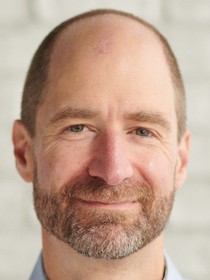
Dr. Greg Landrum, Senior Scientist, ETH Zurich
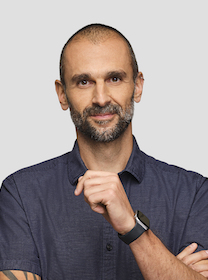
Dr. Teodoro Laino, Distinguished RSM, Manager, IBM Research Europe - Zurich
Teo received the Master degree in theoretical chemistry in 2001 (University of Pisa and Scuola Normale Superiore di Pisa, Italy) and the doctorate in computational chemistry in 2006 (Scuola Normale Superiore di Pisa, Italy) defending a thesis on 'Multi-Grid QM/ MM Approaches in ab initio Molecular Dynamics' supervised by Prof. Dr. Michele Parrinello. From 2006 to 2008, Teo worked as a post-doctoral researcher in the research group of Prof. Dr. Jürg Hutter at the University of Zurich, contributing to the development of the CP2K simulation package. In 2008, Teo joined the IBM Research - Zurich Laboratory (ZRL) as Research Scientist. He is currently Distinguished Research Scientist and manager.
His research interests focus on developing machine learning/artificial intelligence technologies to digitalize chemistry and materials science, with IBM RXN for chemistry being an example of a recent community success. In 2022, the team received the Sandmeyer Award of the Swiss Chemical Society for the important contributions to the field of digital chemistry.
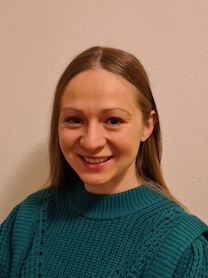
Dr. Marzena Lehmann, Scientific Software Development, Syngenta Crop Protection Research, Stein
Marzena is a Scientific Software Developer at Syngenta Crop Protection. She studied Computer Science and Artificial Intelligence at the University of Edinburgh, where she was also awarded a PhD in the field of Computational Neuroscience / Neuroinformatics. Her research was focused on the role of inhibition and disinhibition in signal propagation in neuronal networks. After joining Syngenta 5 years ago, she was involved in many cheminformatics projects, such as chemical library enumeration or building synthesis prediction models. She developed various frontend applications, data processing pipelines and APIs. Currently she’s working on NLP and OCSR (Optical Chemical Structure Recognition) to extract chemical data from text and images.
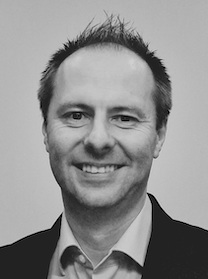
Dr. Torsten Luksch, Head of Computational Chemistry & Scientific Computing, Syngenta Crop Protection Research, Stein
Torsten received a diploma in Chemistry in 2003 from the University of Marburg in Germany. After his PhD with Prof. Gerhard Klebe, he moved in 2008 to the Drug Discovery Unit in Dundee, Scotland, and worked there as computational chemist on the discovery of drugs against neglected diseases. End of 2009 Torsten joined Syngenta as computational chemist, where he worked in project teams on the discovery of new crop protection solutions. With structure-based design and data analysis methods he contributed to the discovery of Tymirium, a new active ingredient, that gives broad-spectrum protection against nematodes and key fungal diseases. In his current role he is leading the Computational Chemistry and Scientific Computing group.
His research interests focus on the Design and Analysis of new active ingredients and the development of automated Design, Analysis, and Synthesis workflows based on computational chemistry, cheminformatics, and machine learning algorithms.
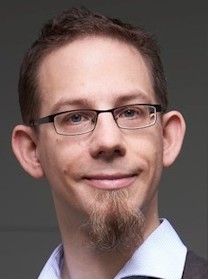
Dr. Christoph P. Sager, Scientist Computer-aided Drug Design, Idorsia Pharmaceuticals Ltd.
Christoph P. Sager is an experienced molecular modeler and computational scientist at Idorsia Pharmaceuticals Ltd. After earning his PhD from the University of Basel (2017), with focus on carbohydrate-lectin interactions in the group of Prof. Beat Ernst, Christoph went to join the group of Prof. Gerhard Klebe at the Philipps University of Marburg as a PostDoc researcher on PPI interactions of bacterial enzymes (2018). His main interests besides drug hunting using structure-based drug design and thermodynamics are the application of large scale virtual screening technologies, the digitalization of medicinal chemistry, in-silico toxicity predictions and the education of the next generation of scientist. He is an active member of the Swiss chemical society, in the division of medicinal chemistry and chemical biology.
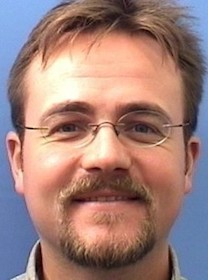
Dr. Marco Stenta, Science and Technology Fellow, Syngenta Crop Protection Research, Stein
Marco received a Master in Organic Chemistry (2004) and a Ph.D. in Medicinal Chemistry (2008) from the University of Bologna (Italy), where he specialized in Computational Chemistry and Enzymology, designing and implementing software and infrastructure to dissect enzyme catalysis with computational tools. In his Postdoctoral Research experience at the École Polytechnique Fédérale de Lausanne, he used biophysical approaches to investigate the growth regulation and structural features of the bacterial Type III Secretion System. He joined Syngenta in 2012 as a member and then leader of the Computer-Aided Molecular Modeling team, supporting research projects in designing novel active ingredients. Currently, he leads the design and implementation of computational platforms that support the property-driven molecular design of active ingredients based on synthetic accessibility. In recent years, he worked on creating data models and ontologies for chemical and reactivity data to complement reactivity models and reaction prediction tools.
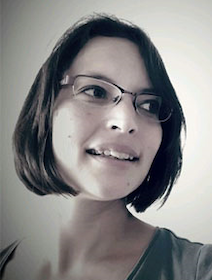
Dr. Naomi Tidten-Luksch, Director Computer-aided Drug Design, Idorsia Pharmaceuticals Ltd.
Naomi received a diploma in Biochemistry and Structural Biology in 2003 from the University of Bayreuth (Germany). After her PhD with Prof. Gerhard Klebe at the University of Marburg (Germany), she continued with a Postdoc in structure-based drug discovery jointly supervised by Prof. William Hunter and Prof. Ruth Brenk at the University of Dundee (Scotland, UK) from 2008-2010. In summer 2010, Naomi joined Actelion Pharmaceuticals Ltd. (Basel-area, Switzerland) as a Computational Chemist, where she worked in project teams on the early drug discovery pipeline. After the demerger from Actelion in 2017, she is still working within the same research unit at the newly founded company Idorsia Pharmaceuticals Ltd. In her current role, she is leading the team of Computer-aided Drug Design, covering different stages of drug discovery support ranging between target assessment, hit identification, hit to lead and lead optimisation applying a broad variety of available computational methods.
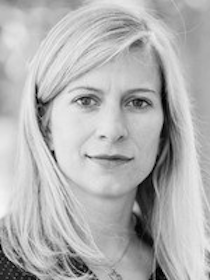
Prof. Andrea Volkamer, Full Professor, Saarland University
Andrea Volkamer recently started her group as full professor at Saarland University in 'Data Driven Drug Design' (2022). Before she was an assistant professor in 'Structural Bioinformatics and in silico Toxicology' at the Institute of Physiology, Charité Universitätsmedizin Berlin. After earning her PhD from the University of Hamburg (2013), with focus on computational active site and druggability predictions, Andrea Volkamer worked at BioMedX Innovation Center, Heidelberg, as a PostDoc researcher on tools to assist the development of selective kinase inhibitors in collaboration with Merck KGaA (2013-2016).
Her main research focus is method development and application at the interface of structural bioinformatics and cheminformatics, with particular interest in structure-enabled machine learning approaches, applied in the context of computational drug design and in silico toxicology.
Group Website: https://volkamerlab.org/